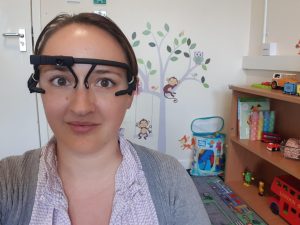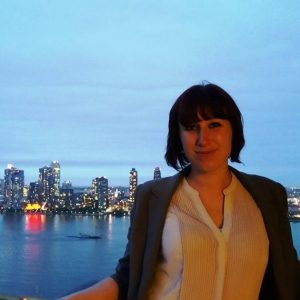Eve Bent is awarded a British Psychological Society (BPS) Undergraduate Research Assistantship
It is an honour to have been chosen to be a recipient of the BPS Research Assistantship scheme and I am excited to be part of this project with Dr Gemma Taylor. I will be working on a project titled: “Investigating the role of children’s visual attention on the video deficit effect” during the summer with 2-1/2-year olds to 3-year old. Please get in touch if you’d like to take part!
As part of the BPS Research Assistantship scheme we will be running a study examining the role that attention plays in learning from 2D screens (e.g., television) and learning from real world 3D interactions. Previous research has suggested that children up to 3 years of age are not able to transfer knowledge from 2D to 3D and vice versa very easily (this is known as the video deficit effect). We aim to examine the role attention has to play during learning when transferring knowledge from 2D to 3D. With the aid of my supervisor, Dr Gemma Taylor, we will use eye tracking glasses to examine where children are looking when watching an imitation demonstration either live or on television. We hypothesise that children’s attention during learning will be related to their learning and their ability to transfer what they have learnt from 2D to 3D.

Eve wearing the eye tracking glasses in our lab
It’s really important to investigate how children learn from digital screens because children are growing up in a digital age surrounded by digital media. It is estimated that nearly 96% of three to four year olds watch a television for 15 hours or more a week, and nearly half (41%) watch TV programs on tablets and other devices as well as regular television viewing (Ofcom, 2016).
I will be presenting my findings at the BPS 2019 Annual Conference and I look forward to the opportunities that the studentship will present me with on my career path to become a Developmental researcher.
